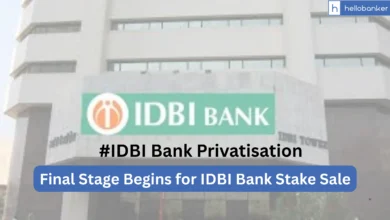IDBI Bank Privatization delayed by Govt

| ➡️ Get instant news updates on Whatsapp. Click here to join our Whatsapp Group. |
The Indian government’s ambitious privatisation agenda has encountered further delays in the divestment of IDBI Bank. This delay is reminiscent of similar postponements seen in the privatisation processes for Container Corporation of India (Concor) and Hindustan Zinc.
IDBI Bank’s Privatisation Challenges
IDBI Bank, in which the government and Life Insurance Corporation (LIC) collectively hold a significant stake, was initially slated for privatisation to enhance operational efficiency and attract strategic investment. However, the process has been hindered by regulatory hurdles, market conditions, and the need for thorough due diligence to ensure a smooth transition.
Challenges in Concor and Hindustan Zinc Privatisation
The privatisation efforts for Concor and Hindustan Zinc have also faced various challenges. Concor, a vital player in India’s logistics and container transportation sector, has encountered complexities due to issues related to land lease agreements. On the other hand, the divestment of Hindustan Zinc, where the government still holds a 29.54% stake, is facing valuation and regulatory concerns.
Government’s Broader Strategy
These delays come at a time when the Indian government is determined to reduce its role in business enterprises and shift its focus towards governance and policy-making. The broader strategy aims to raise substantial revenue by selling stakes in public sector companies, which can then be utilized for developmental projects and economic reforms.
Government’s Commitment and Plans
Despite the setbacks, the government remains committed to its privatisation agenda and has plans to address the impediments and expedite the process. Stakeholders are hopeful that resolving these issues will pave the way for successful privatisation, fostering a more competitive and robust economic environment.
Finance Ministry’s Efforts
The finance ministry is actively working on resolving the outstanding issues to ensure that the privatisation moves forward efficiently. Although the delays may be frustrating for investors and policymakers, they are seen as necessary steps to ensure that the divestments are conducted in a manner that maximizes value and ensures long-term benefits for the economy.
